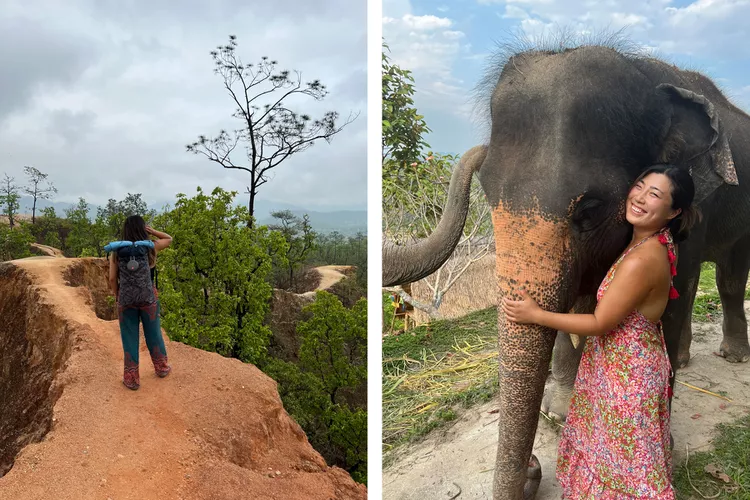Summary
From Working in Tech to Traveling Through Thailand
I feel lucky that my career started in a dark, gloomy corporate office. It forced me to wonder, day in and day out, “How can I stop coming here every day?”
Career Journey Begins
I would spend every day figuring out how to avoid spending 40 hours a week in a 6-by-8-foot cubicle in some corporate center. One day, I googled “how to retire early,” and I found the Financial Independence / Retire Early (FI/RE) movement. The more I read, the more motivated I became to save and invest 50% of my income to escape the 9-to-5 grind, office politics, and paycheck-to-paycheck limitations. My investments were going to be my ticket out of the corporate world.
As I continued to manage my student loans, build an emergency fund, and invest my paychecks, I realized I was doing something bigger: I was making myself financially independent. Consequently, I found myself taking a year off to travel at a time when burnout from the pandemic and aggressive work expectations hit hard.
Effective Saving Strategies
So, I adjusted my goals slightly. Instead of investing aggressively to retire at 35, I shifted my savings plan to fund a one-year break. The new plan was to save $15,000 for four months of travel and start a side hustle or two for the remainder of my gap year.
There were a few commitments I made from the start. First, I was determined to minimize expenses. I stopped buying new clothes, canceled all monthly subscriptions, and opted for public transportation instead of Uber rides.
Furthermore, I moved back in with my parents for a year. Like many individuals, rent was one of my largest expenses. When my lease expired in 2020, I chose to stay at my parents’ house rather than find a new place to rent. This decision allowed me to redirect most of my income into investments and savings.
I also began selling some of my possessions. I’ve often heard that “anybody can earn money from their iPhone,” but it wasn’t until I sold my first item on Poshmark that I truly believed it. Once I sold one item, my enthusiasm grew, leading me to list more. Within a year, I sold nearly 100 items, earning $1,054.
Additionally, I completely halted new clothing purchases and shopping in general. I realized I wouldn’t be able to bring much with me during my travels and every dollar spent meant less money for my gap year. Thus, I envisioned my travel year as my ultimate investment, resisting countless shopping temptations.
In preparation for my departure, I intensified my 401(k) contributions. While this may seem counterintuitive, I was trying to compensate for lost future investment opportunities. I prioritized increasing my contributions while still employed, as my gap year would limit my ability to contribute to a retirement plan.
Moreover, I researched health insurance options. While it was nerve-wracking to think about managing my own health coverage, I soon felt more at ease after exploring options on my state’s health care marketplace. I was able to compare various plans at different price points, allowing me to estimate the monthly costs and incorporate them into my savings goals.
To supplement my income, I started writing personal finance articles on Medium and creating engaging content on Instagram. Since launching my blog, I have experienced invitations for speaking engagements, workshops, and opportunities to sell digital content. Consequently, the savings from lower rent, decreased expense levels, and side hustles helped me accumulate the $15,000 I needed to travel.
Creating a Budget for Travel
Finally, before resigning from my job, I developed a specific budget for my year off. Regular budgeting is essential for me throughout the year, but I understood the stakes would be much higher post-employment. Ensuring I could fund my four months of travel was critical, leading me to meticulously budget for each month.
Realities of a Gap Year
It’s essential to note that many gap year stories often appear spontaneous, but that’s rarely the truth. I dedicated five years to saving and investing to position myself for a meaningful gap year. Taking charge of my finances has empowered me to prepare effectively for this journey.
At this point, I don’t have concrete travel plans, and this freedom is incredibly liberating compared to my former 9-to-5 schedule. Presently, I’m in Chiang Mai, Thailand, and I have no idea where I’ll head next. Perhaps Vietnam, Portugal, or Italy? The liberty to choose without needing permission or a PTO request feels like the ideal way to live.






